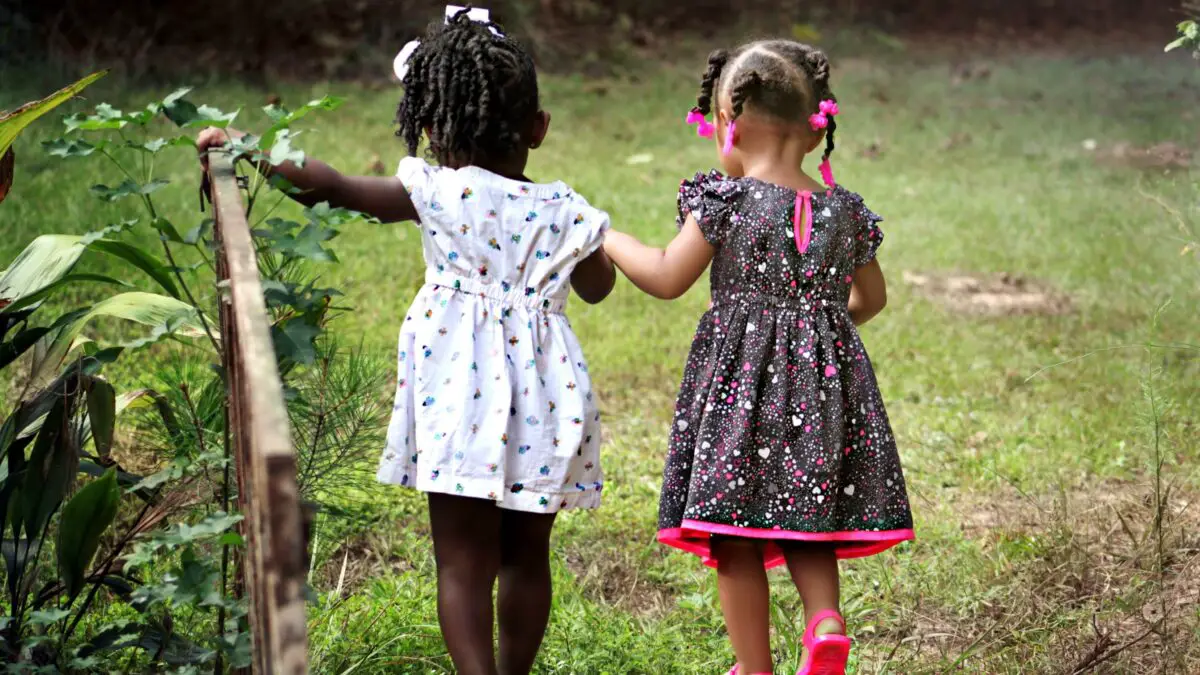English idioms are an easy and fun way to help children learn English and expand their vocabulary.
In this list of English idioms for kids with meanings and examples, we have included heaps of expressions that will give you all a good laugh as you imagine what they mean. We hope that you and your little people will enjoy going through this list and trying to understand them all!

Common idioms for kids
A fish out of water
Here’s the first of our English idioms for kids. Perhaps they will experience this feeling when they start a new school or move to a new city. This fish idiom describes feeling awkward or unhappy because you are in a new space or setting.
Just imagine: a fish out of water would not be relaxed if you removed it from the water and put it elsewhere. It would wriggle around and do its best to get back to the place it wanted to be.
“Starting a new school can be hard. I feel a bit like a fish out of water.”
Under the weather
Not feeling so great? Perhaps feeling a little unwell or sick? Or even just a little run down or low in spirits? If so, then use this weather-related idiom: under the weather.
“He’s been feeling a little under the weather all week.”
“I don’t think you should go to the party if you’re under the weather.”
This is a nice saying for children to know, as they often get runny noses, coughs or sneezes. They could explain how they feel with this expression.
Beat around the bush
Sometimes you need to be direct, explaining something without lots of details. When this approach is needed, people will tell you not to beat around the bush. This is a great idiom for kids as they are often known to drop hints or waffle on (give details that aren’t needed), rather than getting straight to the point.
“I don’t understand what you want. Don’t beat around the bush!”
“Stop beating around the bush; I don’t have all day to listen to you!”
Note that this expression is almost always used in a negative construction.
Break the ice
This might be something that kids have to do as they get older and end up in more social situations. When people are feeling nervous or awkward, to break the ice is to say or do something to make people feel at ease. This could be introducing yourself, telling a joke, playing a game, or anything that gets the conversation flowing.
“Well, I guess someone needs to break the ice, so allow me to introduce myself.”
It’s very common in a work or school group setting for an icebreaker activity to be used.
Like stealing candy from a baby
Common idioms for kids can be really fun to use, and even more fun to picture! When doing something that you find really easy, you could comment that it’s like stealing candy from a baby. After all, a poor little baby wouldn’t be able to stop you if you tried to steal from them, so it would be easy to do.
“I can’t believe we got away with that. It was like stealing candy from a baby.”
As it’s not morally or ethically right to steal anything from a baby, this idiom can be used to describe doing something a little naughty or underhanded!
There are many variations on this expression – find them in our article about easy idioms.
Break a leg
This is a very common saying, but one that really should only be said in a theater. It is believed to be bad luck to wish someone “good luck” for their show or performance. So, for some reason, people will tell performers to break a leg. This is surely an amusing idiom for children to know!
“I can’t believe tonight is the first show. Break a leg.”
Although this is traditionally theatrical slang, it can be used in a jokey way whenever anyone wants to wish someone else good luck.
Throw your toys out of the pram
Some examples of idioms for kids are used more in British English vs American English, and this is one of them. Throwing your toys out of the pram means behaving in a childishly angry way (also known as throwing a tantrum), often because you couldn’t get what you wanted.
You can use this to describe the behavior of a child, but it’s even funnier when you call out this childish behavior in an adult.
“I know it’s not fair, but there’s no point throwing your toys out of the pram about it!”
“You’re a grown adult; don’t throw your toys out of the pram just because they have run out of your favorite dessert!”
Alternative versions use the word ‘dummy’ instead of ‘toys’, or ‘cot’ instead of ‘pram’.
Once in a blue moon
Be sure to have once in a blue moon on your list of idioms for kids. It’s a great way of saying that something rarely happens. Children love to picture an actual blue moon, which of course doesn’t happen very often.
“I only go to the gym once in a blue moon.”
A month of Sundays
Another super English saying for kids that means a similar thing is a month of Sundays. This refers to a very long, perhaps indefinite, period of time. It can also be used in negative constructions to mean ‘never’.
“It’s been a month of Sundays since I went to the beach.”
“Not in a month of Sundays will she admit she was wrong.”
Walking on air
Enjoy explaining this saying to your children when they are next in an upbeat mood. When someone is said to be walking on air, they are excited and very happy.
“I can’t believe I aced the test. I feel like I’m walking on air.”
There are lots more idioms to describe happiness in different ways.
Get it out of your system
Idioms for kids can be used to comfort them, like when you tell them to get it out of their system. ‘It’ refers to a thought or emotion that is troubling you, or a desire to do something. You might encourage a child to cry or talk about something to get it out of their system. Or, if they are full of energy, you may tell them to go and run around outside!
“It’s ok. You have a good cry and get it out of your system.”
Another way this idiom could be used is if you have always wanted to do something, like climb a mountain, then people may encourage you to do it so that the desire is fulfilled.
“If you want to travel the world, I say get it out of your system while you’re young.”
Get your act together
Perhaps you could use or explain this phrase to slightly older children. Saying get your act together is a way of telling someone that they need to organize their looks, attitude, studies, etc. in order to achieve something.
“I don’t know what you were thinking. You really need to get your act together.”
“You’d better get your act together if you want to achieve those grades.”
The early bird gets the worm
If you need idioms for kids to help them get out of bed, be sure to tell them the early bird gets (or catches) the worm.
This is telling them that people who get up early and tackle the day early get rewarded. On the other hand, people that only get going in the late morning or mid-afternoon will miss out on opportunities.
Another way of putting it is that the people who act first will get rewarded.
“Remember, the early bird gets the worm, so tomorrow we’ll wake up at 6.”
This is a good example of a nature idiom.

Funny idioms for kids
We have a separate list of funny idioms, but here are some that should resonate especially well with kids.
In a pickle
Good luck trying to explain why being in a pickle actually means you are in a difficult situation or have a small problem!
“Oh, I’m not sure what do to now. We’re in a pickle really.”
Native speakers may also add words like ‘right’, ‘bit of a” or ‘pretty’ to this phrase before the word ‘pickle’. For example, “I’m in a right pickle”. Don’t use this to describe serious issues; it may seem disrespectful.
Ants in your pants
A lot of parents will have used this saying to describe the fact that their kids won’t or can’t sit still. It can also be used to mean someone is nervous or anxious about something. The longer version reads: ants in your pants make your belly button dance!
“Just sit still! Have you got ants in your pants?”
If you fancy more animal idioms, here is a full list to look through.
When pigs fly
Here’s a great phrase to use when trying to say ‘no’ or ‘never’ to a child. Tell them that they can do or have something when pigs fly. As you can guess, pigs will never fly, so use this when you need a humorous way of saying there is no chance of something happening.
“You’ll get more ice cream when pigs fly.”
Pull yourself together
Telling children to pull themselves together means they need to regain their calm or control their emotions. You could use this after someone has been angry, laughing too much, or perhaps crying.
“Ok, ok, ok. It wasn’t that bad, pull yourself together.”
We have a separate list of sayings about laughing that are also lots of fun for kids!
Cool as a cucumber
This has to be one of the funniest idioms for kids to imagine. Picture a cucumber, relaxing with sunglasses on! To be as cool as a cucumber means to be calm and relaxed, especially when something unexpected happens and you remain untroubled.
“Look at him acting as cool as a cucumber.”
Find some more cool idioms here if you like this one.
Egg on your face
Here’s another idiom that will make kids laugh. It’s especially useful if they have done something that caused them embarrassment. People who are said to have egg on their face have done or said something foolish. It is normally applied when you said something would happen, but it didn’t.
“He ended up with egg on his face as the band he promised never showed up.”
Gone pear-shaped
When something has gone wrong, failed or not turned out as hoped, use this comical expression.
“To be honest, the project has gone a little pear-shaped.”
Although it may seem obvious why we say something has gone pear-shaped, there is a little more history to it than you may realize.
It’s not rocket science
Rocket science is hard and extremely complex. So, when you hear someone mention that something is not rocket science, they are implying that the task is easy to do and understand.
“Hurry up and finish your homework. It’s not rocket science.”
An alternative to this saying is that something is not brain surgery. Again, it implies that the task is very easy in comparison to brain surgery.
Spill the beans
To spill the beans is to tell someone a secret or share information with them. This may be on purpose or by accident.
“I love catching up with you. Spill the beans, what’s been happening?”
“It was supposed to be a suprise party! Who spilled the beans?”
Go bananas
There seem to be a lot of food-related idioms for kids, and that’s because they are hilarious. This one is about the excitement of going wild, having fun and letting loose. However, to go bananas can also have a negative meaning as people may use it to describe anger.
“Come on everyone, let’s have some fun. Go bananas!”
“He will go bananas when he sees the damage to the car.”
On the ball
When someone is on the ball they are alert, ready, and full of new ideas. They may also be up-to-date with the newest trends and technology. They are not balancing on a ball, as a child may think!
“If you want to be successful in this company, you have to be on the ball.”
Cost an arm and a leg
This money-related saying is an unusual way of saying something costs a lot. Although we don’t know what the real cost of an arm and a leg would be, we can assume it’s very expensive.
“We’re not going to see the football game as the season tickets cost an arm and a leg this year.”
Pull someone’s leg
Please don’t actually pull someone’s leg! This is a great idiom to use with kids when they are trying to tell a joke or tease you. You may also say it if you think someone is trying to deceive you in a playful way.
“It was only a joke. He was just pulling your leg.”
“Come on now, are you pulling my leg?”
You could also tell someone to pull the other one if you think they are joking.
“You’re saying that we’ve won the lottery? Pull the other one!”
This phrase is mainly heard in the UK. You can also use a longer version, ‘pull the other one, it’s got bells on’.
Hit the sack / hay
Perhaps you’ll start using some of these English idioms for kids today. This is a good one to use at bedtime or nap time. To hit the sack or hay is to go to sleep.
“It’s been a long week and I’m ready to hit the sack.”
Has the cat got your tongue?
These funny idioms for kids are great as they create a comical image in your mind, and especially in the minds of children.
You might ask Has the cat got your tongue? when someone has gone unusually quiet and doesn’t know what to say. The idea of a cat holding their tongue so they can’t speak might just be enough to snap them out of it!
“You’ve been quiet all day. Are you ok or has the cat got your tongue?”
If your child loves cats, show them some more cat idioms!
Elephant in the room
Kids will love the sound of this idiom, even if it’s quite a serious matter. An elephant in the room is actually a topic that is being avoided and not spoken about. The subject is obvious to everyone (just like an elephant would be), but is not addressed as it is easier to just ignore it.
“Just remember, don’t mention the elephant in the room. Better to keep the mood light.”
Get bent out of shape
Although this is one of the more common idioms for kids from American English, is it used worldwide. To get bent out of shape is to become upset, angry, or worked up over something.
“I said I was sorry so there’s no need to get bent out of shape over it.”
This phrase can also be used to describe an object that has, more literally, become misshapen.
If you’re looking for some more fun ways to engage kids in conversation, why not try these would you rather questions for kids? They present two choices (sometimes quite ridiculous ones) that you must discuss and choose between.
You could also buy a conversation starter game or another of these great toys for teaching English.

Idioms for kids and babies
Finally, we have some idioms that can be used to describe kids and babies.
Blue-eyed boy
Some of these idioms for kids are actually derogatory. Calling someone a blue-eyed boy may sound like a nice thing to say, but it implies that someone is treated in a special way by someone in authority.
“He’s such a blue-eyed boy, always getting preferential treatment.”
A similar phrase is teacher’s pet, but you’d only use this as an education or school idiom.
Babe in arms
When a baby is too young to walk and needs to be carried, they would be referred to as a babe in arms.
“I think babes in arms are free on the bus.”
It takes a village (to raise a child)
Although you’ll find this phrase on most lists of idioms for kids, it’s actually a proverb that is worth understanding. It’s a lovely way of saying that a whole community is needed to bring up a positive and well-balanced child. It’s not just the job of the mother, father or immediate family.
“Never worry about asking for help with your newborn. Remember, it takes a village!”
Discover more idioms about family here.
Boys will be boys
This is a rather dated saying that isn’t very popular nowadays. To say boys will be boys is to express that certain behavior is excusable or expected from boys. This could be rowdiness, fighting, or getting dirty during play.
“They have been fighting all day, but you know, boys will be boys.”
Sugar and spice
Here’s another outdated phrase, this time describing girls. It comes from a very old nursery rhyme describing what girls and boys are made of. This line states that girls are made from sugar and spice and all things nice, suggesting that they are expected to behave in a kind, friendly and well-mannered way.
“She’s not exactly sugar and spice.”
Why not find out more about this poem, as music and songs are great ways to learn English
Child’s play
Here’s another way of expressing an extremely easy thing to do. Like describing something as not rocket science or brain surgery, when you call something child’s play you’re saying it is a trivial issue or simple to complete.
“This new job is child’s play. I love it.”
Out of the mouths of babes
Sometimes children, young people or inexperienced people can offer wise comments or speak a wholesome truth. It might surprise the people around them that they have said something so profound.
“I was so embarrassed that he shouted it out, but I said to Barry, never a truer word spoken than out of the mouths of babes.”
Believe it or not, out of the mouth of babes is an idiom from the Bible, found in Psalms 8:2.
Sleep like a baby
This saying might not make sense if your baby was a bad sleeper. To comment that someone sleeps like a baby means they usually sleep well, and very deeply.
“My husband sleeps like a baby. Nothing can wake him once he’s asleep.”
You may also hear the saying changed to sleep like a log. Both these sleep idioms mean the same.
We’d love to know which of these idioms your kids loved learning about. Are there any others you think should be on this list? Feel free to comment below with any questions or ideas.



